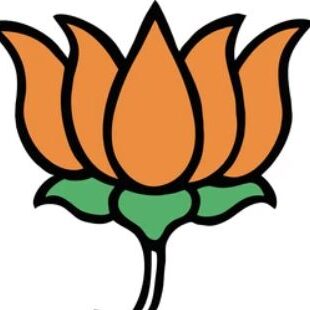Erdogan calls Hamas terrorists freedom fighters , wonder what a terrorist will look like for this guy
May be a female Israel soldier will look like a terrorist for this Jihadi president of Turkey
Israel should continue the war until the last terrorist is eliminated
Please let us know your thoughts
For the past 22 days, Israel’s actions in the Gaza Strip have ignited a global debate on the issue of war crimes and human rights violations. Turkish President Recep Tayyip Erdogan has been particularly vocal in his criticism of Israel’s conduct during this period, accusing the country of openly committing war crimes. In a public address to a crowd in Istanbul, Erdogan expressed his frustration with Western leaders’ apparent reluctance to call for a ceasefire and take a more active role in addressing the ongoing conflict. Meanwhile, Erdogan’s support for Hamas as “freedom fighters” has added fuel to the fire, further straining Israel-Turkey relations. This article aims to provide an in-depth analysis of the Israel-Turkey diplomatic tensions, the accusations of war crimes, Erdogan’s stance on Hamas, and the decision by Israel to recall its diplomats from Turkey.
Israel’s Actions in Gaza: Allegations of War Crimes
The conflict in the Gaza Strip has been ongoing for decades, with recurring cycles of violence and a complex history that defies easy solutions. The recent 22-day period has seen a significant escalation of hostilities, leading to claims of war crimes committed by Israel. These allegations revolve around the extensive use of force in densely populated areas, causing civilian casualties and damage to civilian infrastructure. International humanitarian law, particularly the Fourth Geneva Convention, lays down the rules for the conduct of parties in an armed conflict, emphasizing the protection of civilians and the need to distinguish between combatants and non-combatants. It is within this framework that accusations of war crimes arise.
Turkey’s Stance on Israel’s Actions
Turkey, under President Erdogan’s leadership, has been a vocal critic of Israel’s actions in the Gaza Strip. Erdogan’s strong condemnation of the Israeli government’s bombardment of the region has resonated with many in Turkey and the wider Islamic world. He has characterized Israel’s actions as war crimes, and his government has called for an immediate ceasefire. Erdogan’s stance, however, has not been without controversy. By openly supporting Hamas as “freedom fighters,” he has further deepened the divide between Turkey and Israel.
Hamas: A Controversial Designation
Hamas is a Palestinian political and military organization that has been in control of the Gaza Strip since 2007. It is considered a terrorist organization by several countries, including the United States, Canada, and the European Union, due to its history of violence and its refusal to recognize the state of Israel. However, it also has political and social wings and enjoys significant support in some Palestinian territories. The designation of Hamas as “freedom fighters” by Erdogan and his government is a matter of contention.
Erdogan’s support for Hamas is rooted in his stance on Palestinian self-determination. He views the organization as a legitimate resistance force fighting against what he perceives as Israeli occupation. This position, however, puts him at odds with Israel and its allies, who consider Hamas a terrorist organization responsible for attacks on Israeli civilians and the continuous threat of violence.
Israel’s Response: Diplomatic Recall
In response to Erdogan’s statements and Turkey’s critical stance on Israel’s actions in Gaza, Israel has decided to recall its diplomats from Turkey. This move was announced by Eli Cohen, Israel’s Minister of Foreign Affairs, in a tweet. Cohen stated that given the “grave statements” emanating from Turkey, the decision to return diplomatic representatives was made to conduct a reevaluation of the relations between the two countries.
The recall of diplomats is a significant diplomatic move and signifies the strain in Israel-Turkey relations. This is not the first time the two nations have faced diplomatic tensions. The relationship has been characterized by ups and downs, with periods of cooperation and discord, particularly since the early 2000s.
The Significance of Diplomatic Relations
Diplomatic relations between countries play a crucial role in shaping international politics and resolving conflicts. They allow for open channels of communication, negotiations, and the pursuit of common interests. The recall of diplomats is often seen as a strong diplomatic signal, suggesting a breakdown or a severe strain in the relationship between two nations.
Reevaluation of Relations
Eli Cohen’s statement implies that Israel wishes to reassess its relations with Turkey. This reevaluation may encompass various aspects of the bilateral relationship, including trade, security cooperation, and diplomatic exchanges. It is a response to the perceived negative impact of Turkey’s statements and actions on the relationship between the two countries.
Turkey’s Role in the Region
Turkey’s stance on the Israeli-Palestinian conflict is reflective of its broader foreign policy approach in the region. Under President Erdogan, Turkey has aimed to position itself as a key player in Middle Eastern affairs. This has involved taking a pro-Palestinian stance and seeking to mediate in regional conflicts. However, these actions have often put Turkey at odds with Israel and other regional actors, such as Egypt and Saudi Arabia, who have different geopolitical interests.
The Israel-Turkey diplomatic tensions resulting from the recent conflict in the Gaza Strip and the recall of Israeli diplomats highlight the complex and sensitive nature of international relations. Israel’s actions in Gaza, Erdogan’s vocal condemnation, and his support for Hamas have all contributed to the deterioration of diplomatic ties. The recall of diplomats signifies a significant step in a strained relationship and suggests that Israel wishes to reassess its relations with Turkey. The ongoing conflict in the Middle East, coupled with the differing geopolitical interests of nations in the region, adds layers of complexity to the situation. As the situation continues to evolve, it remains to be seen how these diplomatic tensions will impact the broader Middle East and international relations.










